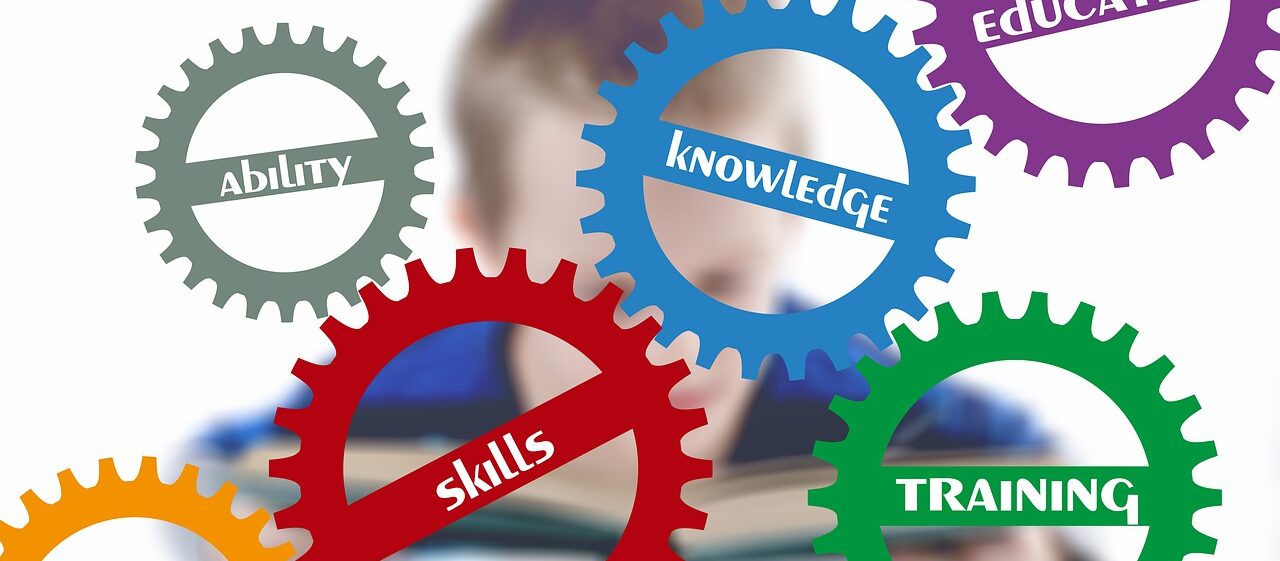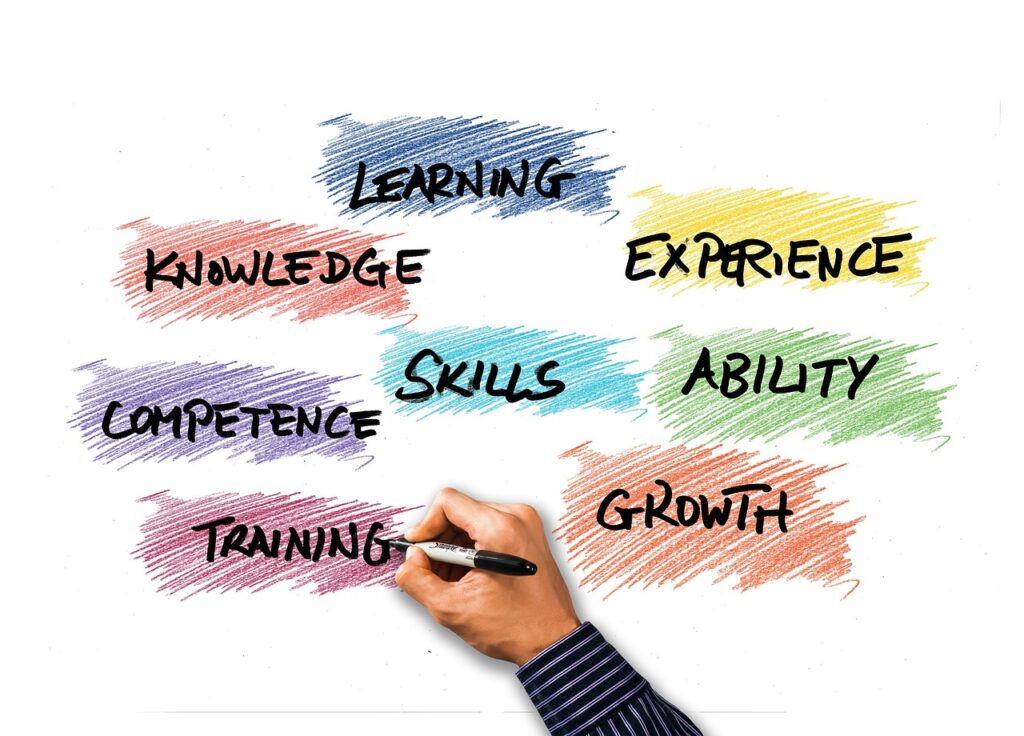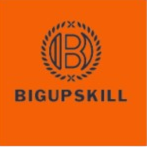
Skill Set Definition Meaning & Examples
A diverse skill set is necessary in today’s fast-paced, competitive job market for both professional and personal success. Making the most of your career path may be facilitated. Just by understanding the Definition and the Meaning of Skill Set, why they matter, and some Examples, regardless of your experience level or desire to change careers.
What Does Skill Set Mean?
A skill set refers to a combination of abilities, competencies, knowledge, and expertise that individuals possess and apply to perform tasks, solve problems, and achieve objectives in various contexts. It encompasses both hard skills, specific, teachable abilities that can be quantified and measured, and soft skills, which are interpersonal attributes and personality traits that facilitate effective communication, collaboration, and adaptability.
What is the Meaning of Skill Sets?

Skill sets serve as the foundation for professional development and career advancement. They enable individuals to excel in their chosen fields, adapt to evolving industry trends, and contribute meaningfully to organizational success. Moreover, skill sets empower individuals to pursue diverse opportunities, pivot between roles, and thrive in a rapidly changing work environment.
What are skill set examples?
1. Technical Skills: These are specialized aptitudes associated with a particular sector, field, or technology. Examples include knowledge of software programs (Microsoft Office Suite, Adobe Creative Cloud), data analysis, graphic design, and engineering, as well as computer languages.
2. Communication Skills: Collaboration, relationship-building, and idea-transmission all depend on effective communication. Effective communication includes speaking and writing as well as active listening and interpersonal skills.
3. Leadership and Management abilities: The capacity to encourage, inspire, and mentor people to accomplish shared objectives is a key component of leadership abilities. They consist of team management, delegating, strategic thinking, and decision-making.
1. Problem-solving abilities: The ability to recognize problems, evaluate underlying causes, and create workable solutions is a sign of problem-solving abilities. Critical thinking, inventiveness, ingenuity, and the capacity to adjust to unanticipated obstacles are all part of these abilities.
2. Time Management and Organization: Reaching deadlines, optimizing output, and striking a balance between conflicting goals all depend on having strong time management and organizational abilities. These abilities include delegating, goal-setting, work prioritizing, and productivity tool utilization.
3. Adaptability and Resilience: These are two essential qualities in the fast-paced workplace of today. These abilities enable people to adapt to change, get beyond obstacles, and prosper in ambiguous circumstances.
4. client Service abilities: Fostering client pleasure and providing outstanding experiences need the use of customer service abilities. They consist of good communication, patience, empathy, and problem-solving skills.
What is the Importance of a Personal Skill Set?
Personal skills help you interact successfully with other stakeholders, such as interviewers, colleagues, customers, clients, or vendors. Strong people skills can help you collaborate and communicate with others more efficiently. These skills can also allow you to form solid bonds and connections with the people around you, which can help you progress and succeed in your career. Good soft skills can also increase your chance of making a positive first impression and help you grow and maintain meaningful relationships.
Strong people skills can be useful for securing your ideal job since a potential employer may regard you as an asset to their company and prefer to hire you if you display certain competencies. Strong soft skills can increase your ability to collaborate closely with others to help ensure the success of team projects and instill customer confidence. Some employers may even hire candidates with less experience if they possess strong people skills.
How to Develop Personal Skill Sets?
A mix of self-awareness, goal-setting, practice, and ongoing learning is required to develop one’s own skill sets. The following actions can help you expand your skill sets:
1. Self-Assessment:
Begin by listing your advantages and disadvantages. Think about the things you do well and the things you could do better.
2. Establish Goals:
Choose the talents you wish to acquire and make sure your objectives are clear and doable. Make sure your objectives have a defined time limit and are quantifiable.
3. Make a Plan:
Describe the course of action you will take to advance each ability. Make a schedule for doing the little chores that will help you achieve your goals.
4. Seek Learning Opportunities:
Search for chances to expand your knowledge and hone your abilities. This might entail enrolling in classes, going to seminars, reading literature, viewing instructional videos, or looking for a mentor.
5. Practice Often:
The development of skills depends on practice. Schedule some time every day or every week to hone your abilities and monitor your development.
6. Accept Feedback:
Remain receptive to the opinions of others. To assist you in pinpointing your areas of weakness and honing your abilities, get advice from mentors, classmates, or teachers.
7. Remain Tenacious:
It takes time and effort to master new skills. Maintain your drive and tenacity in the face of obstacles or disappointments.
8. Accept Failure:
Don’t let failure scare you. Failure is a necessary component of learning and can offer insightful information for development.
9. Stay Up to Date:
Stay informed about changes occurring in your field and show that you are prepared to adapt and acquire new abilities as needed.
10. Reflect and Adjust:
Regularly assess your progress and adjust your plan of action as necessary. Celebrate your successes and use setbacks as teaching opportunities.
You may effectively build and improve your skill sets over time by following these recommendations and being dedicated to your personal development.
Conclusion
In conclusion, skill sets play a pivotal role in shaping individuals’ professional journeys and defining their success in the workplace. By continuously honing and expanding their skill sets, individuals can remain relevant, competitive, and adaptable in today’s ever-evolving job market. Whether acquiring technical expertise, refining interpersonal skills, or cultivating leadership abilities, investing in skill development is a worthwhile endeavor that opens doors to endless possibilities and opportunities for growth. As we embrace the future of work, let us recognize the transformative power of skill sets and harness them to realize our full potential.





